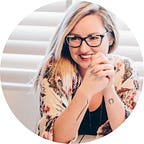What if women built a bank?
I’ve been having a lot of discussions with my female friends about money. The discontent is universal. No one has enough money, no one knows what to do with the money they have, no one knows where it goes, and no one knows how much will be enough.
Barclays is projecting that 60% of the UK’s wealth will be in the hands of women by 2025. Many women are poised to benefit from the ‘Great Wealth Transfer’ which will see an estimated £5.5 trillion pass between generations in the UK in the next 30 years. And women already make the vast majority of the spending decisions for our households.
But something is broken.
Over 70% of women report a lack of confidence in their financial knowledge and will likely lose nearly £1 million across their lifetime as a result. Half of women report their well-being has been negatively affected by finances and 52% of women feel they only having enough money for food, shelter, and basics. Nearly two-thirds of European women believe that, financially, they are worse off than five years ago. And this is all pre-pandemic.
Are women bad with money? Or was banking not built for us?
More women are in lower-paid or part-time roles to work around caring responsibilities or having taken career gaps to raise a family. Historically, our spending has focused on meeting household needs, not long-term investment. And we do the most unpaid work, irrespective of the proportion of household income we bring in.
‘Banking for women’ isn’t working for banking, nor for women. Banks have tried and consistently come up short when marketing to women. Women are overwhelmed, intimidated, and struggling. We can’t seem to make ends meet, much less dedicate resources to savings, investments, trading, and pensions.
“But banking is gender neutral.” Actually, it’s not. Evidence shows that approaches that may appear to be gender-netural default towards men’s needs and preferences. Caroline Criado-Perez’s revolutionary book Invisible Women describes the gender data gap and exposes the danger of systematically ignoring half the population.
“Representation of the world, like the world itself, is the work of men; they describe it from their own point of view, which they confuse with the absolute truth.” Simone de Beauvoir
Women certainly weren’t consulted in the design of banks, investments, or trading systems. The Bank of England was established 327 years ago, but women’s relationship with banking is much shorter.
Only women who inherited money from a male relative had much to do with banks. And until the Married Women’s Property Act of 1882, any property held by women automatically came under the ownership of their husbands.
Many banks required married women to submit a form of authorisation signed by their husband before they could open an account. Some banks even passed by-laws barring women from buying their shares. Until the 1980s, women seeking mortgages, loans, and credit were routinely rejected if they didn’t have a male guarantor.
Personally, I’m frustrated. Rather than continuing to burden women with navigating a system that wasn’t built with us in mind, what if we designed a new bank?
The Hilda Project is a new research initiative to re-imagine a banking system designed by women. I’m interviewing 100 women in 100 days about the moments that matter in their lives and understand how money helped or hurt those moments. My hypothesis is that by engaging women and focusing on the realities of their lives, we can design new ways to deliver financial services that will help everyone.
I’ll publish insights and a-ha moments as I go and will write a report at the end summarising what I find out. Maybe women don’t need a bank, but we’ll never know if we don’t ask the question.
To learn more about The Hilda Project or book an interview, visit www.hildaproject.org.
